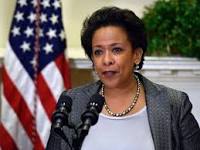The impact of high interest rates in the US has been a hot topic over the past couple of days and months and all this is for the good reasons. Interest rates are of great concern since the make up a major trading element that largely sends shock waves within the global economy. Moreover, the issue of stock market volatility around the world has only served to worsen things and China is one of the countries that have since been hard hit by these latest developments.
For Federal Reserve policy makers, these issues to do with interests rates, binary options and volatility in trading are of major concern. Just recently, the Fed was hesitant to lift its major interest rates level from the zero digits as a result of worries about the said ripple effects. With a shaky Chinese economy, this was an aspect that was rather farfetched and this certainly is the outcome that they have to appreciate at this time. Perhaps Fed needs to revise its expectations as they forge into the future. They ought to take lessons from one outstanding situation that played out close to 20 years ago in the years 1994 and 1995. These developments of that time might serve to educate them even better.
During those days in 1994, unlike China is the case today, Mexico was the focal point. At the time, as the rising interest rates within the United States put pressure on a rather merging economy that was already suffering from a weak currency, too much debt had to be dealt with and therefore the economy of Mexico was in more instances than one brought to a standstill. As things looks like, China is quite shaky and this implies thing might not be working as well as many people might tend to think.
At the time, Mexico’s only solution was for it to be bailed out the International Monetary Fund and the United States. A repeat of those sorts of occurrences is something that will definitely be uncalled for at this time. Episodes of economic turmoil from the 1990s have been quite vivid in many nations and that is exactly something that many officials always hope to avoid or rather lessen. This of course has to occur as internal initiative as they await for the Fed to raise its rates finally.
With there being a prospect of a Fed rate hike, there is absolutely no doubt that many policymakers within the emerging markets are pretty much concerned. Again, the Fed policy makers on the other hand have since cited global economic conditions as the main reasons for rate changes in the global binary options markets and the whole aspect of international trade in essence. When rates are the subject of contention, Fed argues that they do change the rates because of global economic conditions as opposed to domestic factors.
Many experts in the financial markets industry argue that people more often than not underestimate the risks involved in the process. The issues even become more pronounced when there is lots of volatility in the industry and things are not especially going as well as some players might have expected. Given what is currently going on in China, Brazil and the other notable emerging markets, there is all reason to be cautious if there happens to be no signs of inflammatory pressures coming from the other major economies of the world.
As it stands, a large chunk of Wall Street is presently looking for Fed to tighten its monetary policy during its last meeting of the year 2015 in the month of December. However, if the international conditions at the time are like the case is now, and inflation does not seem to offer too much of a threat, it might as well be prudent to take the plunge right now. To other observers, the delay by Fed will just give the emerging markets some more time for them to recover from the current so-called China-induced volatility.




